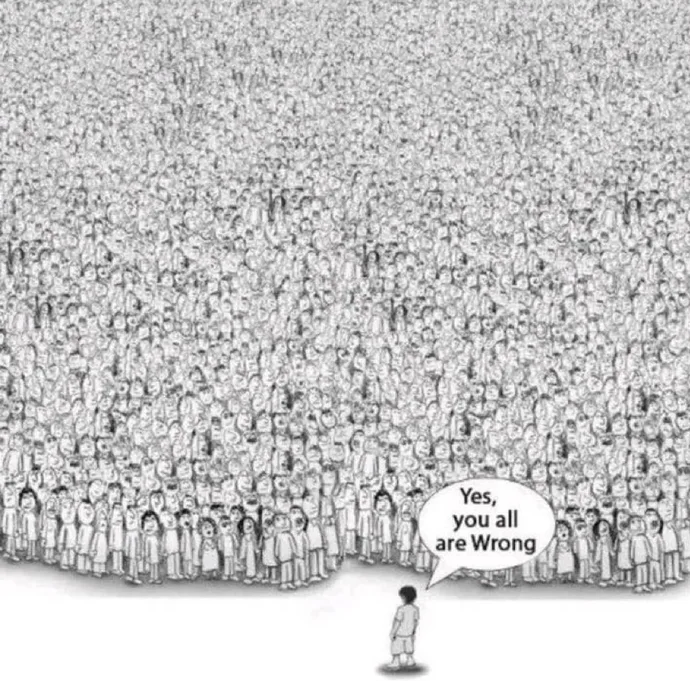The Source of Novel Torah Insights

From where do novel insights of the Torah [חדושי תורה, chidushei Torah] come? On the one hand, there are those of us who merit to study Torah day and night yet rarely come up with (or ‘are given’) chidushim. On the other hand, there are those of us who even though we may not merit to study Torah day and night, frequently come up with (or ‘are given’) chidushim. On the surface, this may seem rather perplexing. Perhaps the answer is that people with a higher IQ or with a broader depth of knowledge come up with chidushim whereas those who aren’t so intelligent or smart don’t. That sounds logical, but is it correct? Let’s explore this topic to understand the real ingredients that are required for the emergence of chidushei Torah.
To one degree or another, throughout the course of our lives, we all experience sufferings [יסורין, yissurin]. We may not all experience happiness or friendship or peace of mind or a loving relationship, but we all experience yissurin. Strange as it may sound, but with all of the diversity and division in the world it seems like the one thing that actually unifies us is yissurin. Yet perhaps this isn’t so true. As there are many different kinds of suffering, each of us really suffers in his own unique and personalized way. Some of us suffer in ways others are not even aware of, whereas the sufferings of others are known to many. Some suffer emotionally, others physically, others mentally, etc. No one really enjoys suffering (so far as we are aware), and it seems like we are willing to do almost anything to avoid it. In fact, entire industries have emerged offering us ‘solutions’ to prevent us from suffering. Quacks and shysters alike prey upon us at the times of our highest vulnerability, often finding us willing to transfer huge sums of money from our pockets to their pockets with the promise of being freed from our suffering.
So although we all suffer (albeit in different ways), we do not all respond to suffering in the same way. The key to handling suffering is to keep in mind that Hashem only acts toward us with kindness even it if doesn’t yet appear that way to us, as it is written (Tehillim 145:9): טוֹב־יְיָ לַכֹּל וְרַחֲמָיו עַל־כׇּל־מַעֲשָׂיו (Hashem is good to all and his compassion is upon all of His works). Therefore, when we experience deprivation or pain, for example, keep this in mind and once this reality becomes anchored in our minds (in דעת, daat) then we can work on focusing on the real goal of yissurin. And what is that? Its goal is to bring us to perfection and to fix all of our shortcomings. As R' Nachman explains (Likutei Moharan 65:3): כִּי אֲפִלּוּ כָּל הַצָּרוֹת וְהַיִּסּוּרִין וְהָרָעוֹת הָעוֹבְרִין עַל הָאָדָם חַס וְשָׁלוֹם אִם יִסְתַּכֵּל עַל הַתַּכְלִית בְּוַדַּאי אֵינָם רָעוֹת כְּלָל רַק טוֹבוֹת גְּדוֹלוֹת. כִּי בְּוַדַּאי כָּל הַיִּסּוּרִין בָּאִים בְּכַוָּנָה מֵהַשֵּׁם יִתְבָּרַךְ לְטוֹבָתוֹ, אִם לְהַזְכִּירוֹ שֶׁיָּשׁוּב בִּתְשׁוּבָה אִם לְמָרֵק עֲווֹנוֹתָיו. וְאִם כֵּן הַיִּסּוּרִין הֵם טוֹבוֹת גְּדוֹלוֹת כִּי כַּוָּנַת הַשֵּׁם יִתְבָּרַךְ הוּא בְּוַדַּאי רַק לְטוֹבָה (Thus even all the troubles and the yissurin and the bad things that sweep over a person, G-d forbid, if he focuses on the ultimate purpose, he will surely see that they are not bad at all, but actually great good. Certainly Hashem, may He be blessed, intends that all suffering comes to a person for his benefit, whether to remind him to do teshuvah or to cleanse him of his sins. And if so, the yissurin are very good because the intent of Hashem, may He be blessed, is without a doubt only for good). Thus, when we, through emunah, are able to focus on the ultimate purpose [תכלית, tachlit] of yissurin, we will no longer experience them as suffering, but instead we will experience sublime happiness.
But isn’t this just a little bit unrealistic? Even with emunah, is it possible for us to reach this level? Reaching this level requires self-nullification or ‘self-transcendence’ [בטול, bitul]. To achieve this, we must focus intensely on the tachlit, to become completely absorbed in the tachlit, and to see only the tachlit, i.e. that everything is only good and that there is no bad in the world at all. In other words, to know and to feel that the Tree of the Knowledge of Good and Bad is just an illusion and the higher, correct reality is the Tree of Life. We need to shut our eyes tight and not even think about or let any other thought enter our mind, especially the desires of this physical world, but rather focus in the moment on the reality of what will be only self-evident to the world-at-large in the future (Zecharyah 14:9): וְהָיָה יְיָ לְמֶלֶךְ עַל־כׇּל־הָאָרֶץ בַּיּוֹם הַהוּא יִהְיֶה יְיָ אֶחָד וּשְׁמוֹ אֶחָד (And Hashem will be king over the whole world; in that day Hashem will be one and His name one).
However, if we are successful at achieving this level of complete bitul even temporarily, it is impossible in this fleshly existence to hold onto it permanently. This is due to the principle of רצוא ושוב [ratzo v’shov] (which we have written about previously), approaching and ascending to a higher level of consciousness and then returning back again (see Yechezkel 1:14). But this is actually not a bad thing, but rather a tangible and measurable good. What is so good about returning to a lower level of consciousness? In the return, there will always be a רשימו (reshimu, trace/residue) remaining of the transcendent experience. Many of us remember in the early days of black and white television, when the televisions were turned off we could see a residual white light that emanated from the screen and remained there for a number of seconds before it completely vanished. This is like the reshimu. We can also experience a physical reshimu if we look at a bright light and then close our eyes. We will continue to see the light for a period of time even after our eyes have shut. And out of this spiritual, transcendent reshimu comes a tremendous blessing. What is that blessing?
Likutei Moharan 65:5 gives us the answer: אַף עַל פִּי שֶׁשָּׁב מֵהַבִּטּוּל אַף־עַל־פִּי־כֵן מֵהָרְשִׁימוּ שֶׁנִּשְׁאָר מֵהַבִּטּוּל עַל־יְדֵי זֶה נַעֲשֶׂה הִתְחַדְּשׁוּת הַתּוֹרָה (Even though one returns from the bitul, even so, from the reshimu that remains from the bitul, through this are made chidushei Torah.) And this reshimu alleviates the experience of suffering, as we will explain with the help of Hashem.
How does it work? What connects the reshimu that is leftover after the bitul to the emergence of chidushei Torah? The connection is שמחה (simchah, happiness/joy). By focusing on the tachlit, we experience simchah. When we know and feel that the real purpose of suffering is for our good, that the tachlit is very good, and then focus exclusively on that goodness, we experience simchah, and that simchah will remain. That’s the reshimu of the self-transcendence experienced during the ratzo phase of ratzo v’shov, and it is this simchah that is the actual vessel for receiving novel Torah insights. The Gemara explains this connection by looking closely at what happened at the giving and receiving of the Torah at Mt. Sinai (Shabbat 88a): בְּשָׁעָה שֶׁהִקְדִּימוּ יִשְׂרָאֵל ״נַעֲשֶׂה״ לְ״נִשְׁמָע״ בָּאוּ שִׁשִּׁים רִיבּוֹא שֶׁל מַלְאֲכֵי הַשָּׁרֵת לְכׇל אֶחָד וְאֶחָד מִיִּשְׂרָאֵל קָשְׁרוּ לוֹ שְׁנֵי כְתָרִים אֶחָד כְּנֶגֶד ״נַעֲשֶׂה״ וְאֶחָד כְּנֶגֶד ״נִשְׁמָע״ וְכֵיוָן שֶׁחָטְאוּ יִשְׂרָאֵל יָרְדוּ מֵאָה וְעֶשְׂרִים רִיבּוֹא מַלְאֲכֵי חַבָּלָה וּפֵירְקוּם (At the moment that Yisrael preceded saying ‘we will do’ to saying ‘we will hear’ [see Shemot 24:7], 600,000 ministering angels came down and tied two crowns to each and every Jew, one for ‘we will do’ and one for ‘we will hear,’ but when Yisrael sinned [in the sin of the golden calf], 1,200,000 destructive angels came down and removed them).
What was the reason for the giving of the crowns and what was the reason for their removal? Continuing in the Gemara there: אָמַר רֵישׁ לָקִישׁ: עָתִיד הַקָּדוֹשׁ בָּרוּךְ הוּא לְהַחֲזִירָן לָנוּ שֶׁנֶּאֱמַר: ״וּפְדוּיֵי ה׳ יְשֻׁבוּן וּבָאוּ צִיּוֹן בְּרִנָּה וְשִׂמְחַת עוֹלָם עַל רֹאשָׁם״ – שִׂמְחָה שֶׁמֵּעוֹלָם עַל רֹאשָׁם (Reish Lakish said, In the future the Holy One, blessed be He, will return them to us, as it is said [Yeshaya 35:10], ‘And the redeemed of Hashem will return and they will come to Tzion with joyous singing-prayer, and eternal simchah will be on their heads’—the simchah from before will be upon their heads). This verse from Yeshaya makes it clear that the crowns were (and will be again) simchah. And the reason they were removed, of course, was due to the loss of simchah associated with the sin of the golden calf—the effects of which are still with us to this day.
And this is the secret of the verse from Tehillim 94:12: אַשְׁרֵי הַגֶּבֶר אֲשֶׁר תְּיַסְּרֶנּוּ יָהּ וּמִתּוֹרָתְךָ תְלַמְּדֶנּוּ (Praiseworthy is the man whom You, G-d, chasten, and whom You teach from Your Torah). In other words, when we are corrected by Hashem through yissurin and we keep our minds focused on the fact that Hashem only does good for us, then we will be taught chidushim from Hashem from His holy Torah. As R' Nachman explains there in Likutei Moharan 65:5: כִּי עַל יְדֵי הַיִּסּוּרִין זוֹכֶה לְהִתְחַדְּשׁוּת הַתּוֹרָה כַּנַּ"ל וְזֶה סִימָן שֶׁפָּעַל עַל יְדֵי הַיִּסּוּרִין וְקִבְּלָם כָּרָאוּי כְּשֶׁזּוֹכֶה אַחַר כָּךְ לְחִדּוּשִׁין דְּאוֹרַיְתָא שֶׁזֶּה סִימָן שֶׁזָּכָה לִבְחִינוֹת בִּטּוּל אֶל הַתַּכְלִית עַל־יְדֵי הַיִּסּוּרִין וְעַל יְדֵי זֶה זָכָה לְחִדּוּשִׁין דְּאוֹרַיְתָא עַל־יְדֵי הָרְשִׁימוּ (For through the yissurin, he merits to chidushei Torah, and this is a sign that he has achieved something through the yissurin and accepted them properly, when afterward he merits to chidushei Torah this is a sign that he merited to achieve an aspect of bitul to the tachlit through the yissurin and through this he merited to chidushei Torah by way of the reshimu).
So there you have it, the whole process laid out step by step. But let’s not let the scope of it overwhelm us. It’s not an all-or-nothing process. Every small step we make toward seeing Hashem’s loving hand in our trials and tribulations—in realizing that they must be for our good (even though we may not yet see how), on focusing on the tachlit, and on replacing anger, grief and despair with simchah—every small step we make matters, and each one counts. They all add up.
May the Holy One, blessed be He, help us to see the tachlit and richly grant us novel and inspiring Torah insights that will comfort us in the times of our sufferings.






